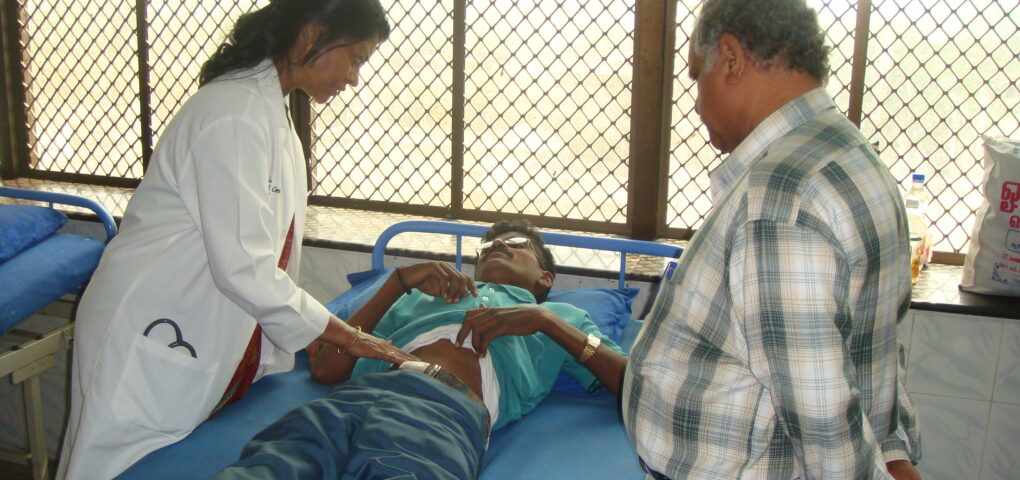“We cannot change the outcome, but we can affect the journey.” – Ann Richardson
In the quiet corridors of hospitals, amid the hum of machines and the whispers of worried families, some of the most profound human experiences unfold—not just of survival, but of acceptance, connection, and peace. One such story is that of Raj*, a young, vibrant soul whose journey through illness reminds us of the importance of dignity, empathy, and communication in the final stages of life.
When the Journey Takes an Unexpected Turn
Raj, a spirited young man with dreams, friends, and his own DJ group, was once the life of every gathering. His energy lit up rooms. But life took an unexpected turn when he began experiencing difficulty in swallowing and discomfort. Initial treatments offered hope, but as months passed, the truth became clearer: Raj was battling an advanced esophageal (food pipe) cancer that had spread to his liver and nearby organs. The active treatment was no longer effective, and the focus had to shift—not to curing, but to caring.
Yet, Raj did not know the full truth.
His caregivers—loving, yet unsure—had shielded him from the reality of his prognosis (the situation being termed “collusion”) He clung to false hope, dreaming of returning to his normal life. This hope, however, turned into frustration as he was not getting better. He grew anxious, irritated, and withdrawn. The emotional toll of not understanding his own body’s decline created distress not only for Raj, but also for his family, who were silently suffering beside him.
The Turning Point: Connection and Clarity
Our palliative care team—comprising doctors, nurses, psychologist, and other specialists—came together with a common goal: to improve Raj’s quality of life. We saw his emotional suffering, his longing for understanding, and the unspoken grief of his family. The most crucial moment came when we persuaded his caregivers to bring in his mother, previously kept away due to her own health concerns.
The reunion between mother and son was beyond words. In her presence, Raj found a sense of calm he had long been missing. It was only then that we could gently begin the process of disclosing the truth—with compassion and care.
Despite initial resistance, we approached the family with our knowledge of communication skills, with open questions, helping in ethical decision-making, and planning for End-of-Life Care (EOLC). At the mother’s request, Raj received Holy Communion at his bedside, a deeply spiritual and comforting moment for him. Shortly after, he passed away peacefully, surrounded by love and understanding.
What Does a Good Death Mean?
A good death is about the presence of dignity, peace, and closure. It means:
- Freedom from unnecessary suffering
- Respect for the patient’s values and wishes
- Emotional, spiritual, and psychological support
- Communication that is honest, kind, and timely
- A chance to say goodbye, to reconcile, and to be remembered
Raj’s final moments reflected many of these principles, though not without challenges. Looking back, we wish we had involved his mother earlier, begun EOLC discussions sooner, and helped the family prepare for what was to come. Even so, through open communication and human connection, we believe Raj found peace—and perhaps, a good death.
Know Your Rights: Advance Medical Directives (AMD)
In India, the right to make decisions about your own end-of-life care is now legally recognized. On March 9, 2018, the Supreme Court of India allowed adults of sound mind to create Advance Medical Directives (AMD)—legal documents that specify the treatments they wish to receive or refuse if they become terminally ill or unable to communicate their wishes.
This right is about autonomy, dignity, and choice. It allows individuals to plan their end-of-life journey with clarity and respect, sparing their loved ones the burden of uncertainty and ensuring their values are honoured.
Final Reflections
Raj’s story is not just a case study in palliative care. It’s a reminder for all of us—patients, families, and caregivers—that while we may not be able to change the outcome, we can always shape the journey.
By choosing compassion over silence, honesty over collusion, and dignity over denial, we can help our loved ones and ourselves face life’s final chapter not with fear, but with grace. Let us strive not just to prolong life, but to enrich the moments that remain.
Dr. Asoke Mathew
